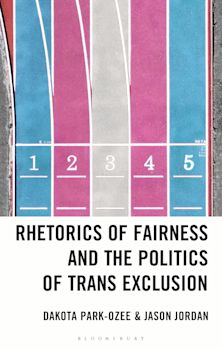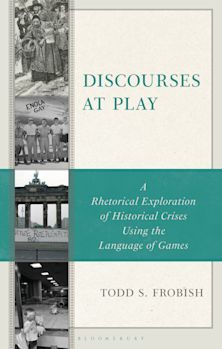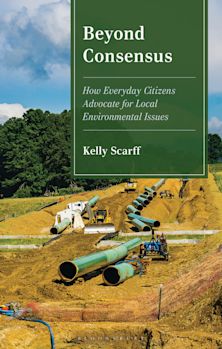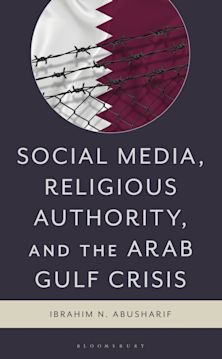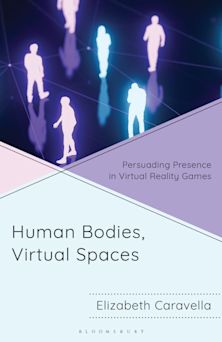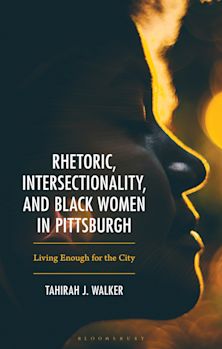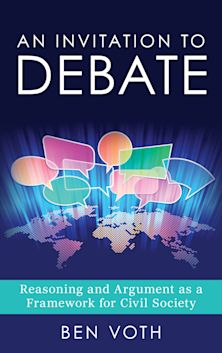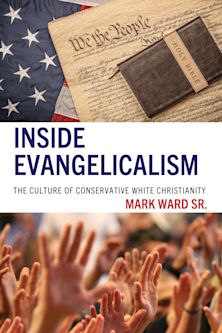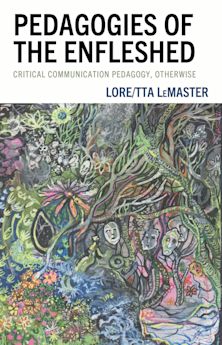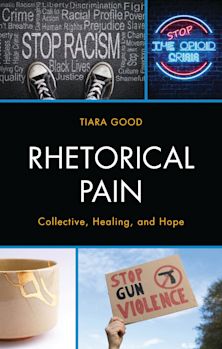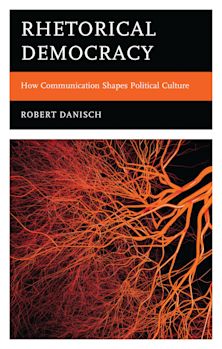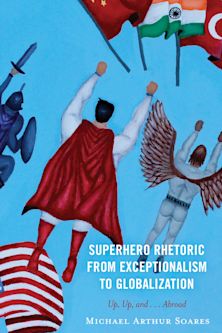- Home
- ACADEMIC
- Communication Studies
- Rhetoric
- The Rhetoric of American Civil Religion
The Rhetoric of American Civil Religion
Symbols, Sinners, and Saints
Jason A. Edwards (Anthology Editor) , Joseph M. Valenzano III (Anthology Editor) , Kevin M. Coe (Contributor) , David Domke (Contributor) , Jason A. Edwards (Contributor) , Theon Hill (Contributor) , Bethany Keeley-Jonker (Contributor) , John P. Koch (Contributor) , Angela M. Lahr (Contributor) , Catherine L. Langford (Contributor) , Eric C. Miller (Contributor) , Penelope Sheets (Contributor) , Sarah A. Morgan Smith (Contributor) , Sher Afgan Tareen (Contributor) , Andrea Terry (Contributor) , Joseph M. Valenzano III (Contributor) , Marissa Lowe Wallace (Contributor) , David Weiss (Contributor)
The Rhetoric of American Civil Religion
Symbols, Sinners, and Saints
Jason A. Edwards (Anthology Editor) , Joseph M. Valenzano III (Anthology Editor) , Kevin M. Coe (Contributor) , David Domke (Contributor) , Jason A. Edwards (Contributor) , Theon Hill (Contributor) , Bethany Keeley-Jonker (Contributor) , John P. Koch (Contributor) , Angela M. Lahr (Contributor) , Catherine L. Langford (Contributor) , Eric C. Miller (Contributor) , Penelope Sheets (Contributor) , Sarah A. Morgan Smith (Contributor) , Sher Afgan Tareen (Contributor) , Andrea Terry (Contributor) , Joseph M. Valenzano III (Contributor) , Marissa Lowe Wallace (Contributor) , David Weiss (Contributor)
This product is usually dispatched within 1 week
- Delivery and returns info
-
Free CA delivery on orders $40 or over
You must sign in to add this item to your wishlist. Please sign in or create an account
Description
The tie that binds all Americans, regardless of their demographic background, is faith in the American system of government. This faith manifests as a form of civil, or secular, religion with its own core documents, creeds, oaths, ceremonies, and even individuals. In The Rhetoric of American Civil Religion: Symbols, Sinners, and Saints, contributors seek to examine some of those core elements of American faith by exploring the proverbial saints, sinners and dominant symbols of the American system.
Table of Contents
Jason A. Edwards and Joseph M. Valenzano, III
1. The Exodus: The Textual Heart of American Civil Religion
Theon E. Hill
2. “Glory in the Fight:” Frederick Douglass and the Revival of Republican Civil Religion
Sarah A. Morgan Smith
3. Civil Religion as Communal Democratic Sentiment: An Emersonian Perspective
Andrea Terry
4. Lighting “Human Spirit Lamps”: Frances Willard, the Conscience of Reform, and American Civil Religion
Angela Lahr
5. Billy Graham’s Cold War Rhetoric: Evangelical and Civil Religious Revival
Marissa Lowe Wallace
6. In God (and Capitalism) We Trust: Identification Through Division in 1950s Civil Religion
Bethany Keeley-Jonker
7. Civil Religion as Christian Religion: Francis Schaeffer’s Liberal Fundamentalism
Eric C. Miller
8. Sinners and Saints: Public Memory, Civil Religion, and Citizenship at the Gerald R. Ford Presidential Museum
John P. Koch
9. Civil Religion or Mere Religion? The Debate Over Presidential Religious Rhetoric
David Weiss
10. Discovering Self in the Absence of Privacy: Race, Religion and the Imagined Bilalians
Sher Afgan Tareen
11. Barack Obama and the Expansion of American Civil Religion
Kevin Coe, David Domke, and Penelope Sheets
12. What Binds This Nation Together: Barack Obama’s Secular Messianic Style in His Second Inaugural Address
Catherine L. Langford
Index
About the Contributors
Product details
| Published | Sep 30 2016 |
|---|---|
| Format | Hardback |
| Edition | 1st |
| Extent | 248 |
| ISBN | 9781498541480 |
| Imprint | Lexington Books |
| Illustrations | 2 BW Illustrations |
| Dimensions | 239 x 157 mm |
| Series | Bloomsbury Studies in Political Communication |
| Publisher | Bloomsbury Publishing |
About the contributors
Reviews
-
In this edited volume, Edwards (Bridgewater State Univ.) and Valenzano (Univ. of Dayton) offer a sampling of studies about civil religion to establish a contemporary starting point for understanding the topic. In 12 chapters, a variety of noted scholars discuss the elements, development, and literature regarding the different forms of civil religion. Authors examine a range of viewpoints and artifacts, including biblical texts, abolitionist rhetoric, presidential rhetoric, feminist perspectives, philosophical perspectives, and Islamic discourses. In a particularly intriguing chapter titled "Sinners and Saints," John P. Koch (Univ. of Puget Sound) discusses the relationship among public memory, civil religion, and the presidency of the US. There are myriad volumes covering the topic of civil religion; this book adds to the literature by establishing that this topic has not been readily defined by scholars, thus contributing toward a refining of how civil religion has been constructed and manifested in American culture. The book is a suitable companion reader and supplemental text for courses that examine the rhetoric of religion. Summing Up: Recommended. Upper-division undergraduates through faculty.
Choice Reviews
-
The symbols and rites of organized religion are the warp and woof, not only of America's political culture, but of language itself. Wherever there is the desire to obtain the elusive political ideal, there too we will find saints, sinners, and rest assuredly, dynamic symbols ready to unite, divide, and if necessary, conquer. "The Great Stereopticon" is no match for either the awe-inspiring god-term or the cultural demands of civic piety. The authors of this timely collection do a fine job reminding us that this remains the case, today more than ever. Well done.
Joseph Rhodes, University of Nevada, Las Vegas Honors College
-
Anyone interested in exploring the historical, political, and rhetorical manifestations of American civil religion should start with this volume. It covers significant moments in the shaping of a unique and fascinating phenomenon.
Dennis Cali, Distinguished Professor of Arts and Sciences, University of Texas at Tyler
-
Edwards and Valenzano bring together a palette of fresh faces and ideas in this edited volume. Collectively the authors answer well the questions concerning the contemporary epistemological status of American Civil Religion, and then posit further questions that arise from their nuanced understandings. This is an important contribution to the literature on American Civil Religion.
Jim A. Kuypers, Louisiana State University












